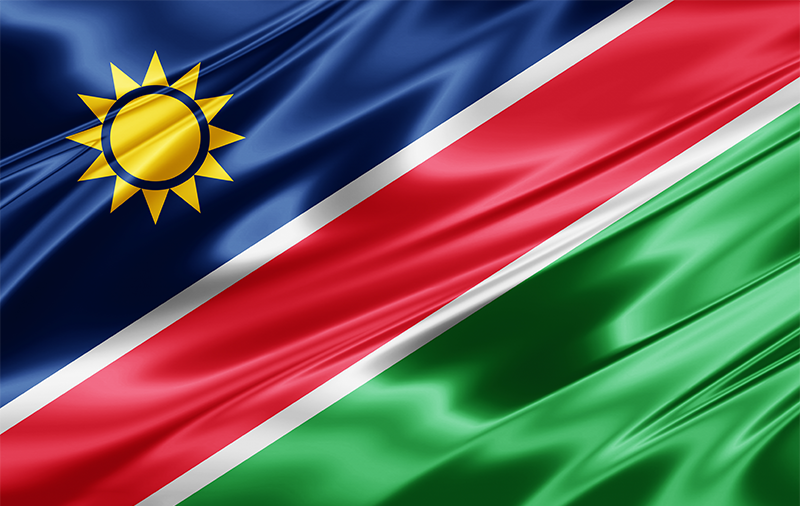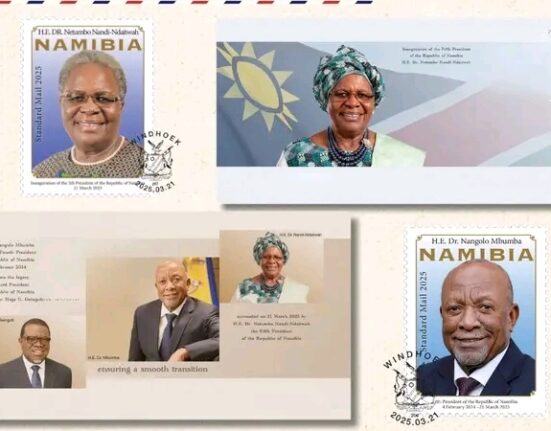Namibia, located in the southern part of Africa, may be one of the continent’s lesser-known nations, but its historical significance is profound and captivating. From ancient civilizations to colonial struggles and its eventual independence, Namibia has played a critical role in shaping both African and global history. In this article, we’ll explore Namibia’s rich and fascinating place in world history, delving into its pre-colonial roots, colonial era, and the modern struggles that shaped the country we know today.
1. Ancient Roots: The First Inhabitants of Namibia
Namibia’s history stretches back thousands of years, with evidence of some of the earliest human activity in Africa. The San people, also known as Bushmen, were the first known inhabitants of Namibia. These indigenous people lived in the country for tens of thousands of years, leaving behind a significant cultural and archaeological legacy. The San are famous for their rock art, which can still be seen today in locations like Twyfelfontein, a UNESCO World Heritage Site. This ancient art offers valuable insights into their way of life and spiritual beliefs, making Namibia one of the most important countries for understanding early human history in Africa.
Another significant ancient group in Namibia was the Khoikhoi, who are believed to have migrated to the region from the north. These early groups laid the groundwork for Namibia’s rich cultural diversity, which still exists today in the form of indigenous languages, traditions, and customs.
2. The Arrival of Bantu Peoples and the Rise of Kingdoms
Around the 14th century, a significant shift occurred in Namibia’s demographic landscape with the arrival of Bantu-speaking peoples from the north. These Bantu groups, which included the Ovambo, Herero, and Nama peoples, brought with them new agricultural practices, metalworking skills, and complex social structures. Over time, these groups formed powerful kingdoms that would later play crucial roles in the region’s history.
The Ovambo kingdoms in the north, for example, developed into large, organized societies with strong leadership structures. Similarly, the Herero and Nama established their own territories and kingdoms in the central and southern parts of Namibia. These kingdoms were not just isolated entities; they had political and trade relationships with other African societies, laying the foundation for Namibia’s complex political landscape in later years.
3. European Exploration and the Beginning of Colonialism
The first Europeans to make contact with Namibia were Portuguese explorers in the late 15th century, though they did not establish any permanent settlements. The true onset of European colonial influence came in the 19th century when the German Empire laid claim to Namibia, which was then known as German South West Africa.
Germany’s arrival in Namibia marked the beginning of a difficult chapter in the country’s history. From the late 1800s to the early 1900s, German colonialists sought to control the indigenous people through violent means, exploiting Namibia’s land and natural resources. This period saw the formation of the German colonial government, which imposed harsh taxes and laws on the local population.
4. The Herero and Nama Genocide: A Dark Chapter in History
One of the most tragic and defining events in Namibia’s history was the Herero and Nama genocide of the early 20th century. Between 1904 and 1907, the Herero people, led by Samuel Maharero, and the Nama people, led by Hendrik Witbooi, led armed resistance against German colonial forces. The Germans, in retaliation, carried out a brutal campaign that resulted in the mass extermination of these indigenous groups.
Estimates suggest that up to 80% of the Herero population was killed, along with a significant portion of the Nama people. The survivors were driven into the desert to die of hunger and thirst, and many were interned in concentration camps. This genocide is considered one of the first instances of genocidal acts in the 20th century, long before the horrors of World War II.
The legacy of this genocide continues to affect Namibia today, with ongoing efforts to secure reparations from Germany, and Namibia’s continual fight for justice and recognition of the atrocities committed during the colonial period. Namibia’s journey toward reconciliation and acknowledgment of this painful history remains a critical aspect of its identity.
5. Namibia under South African Rule: The Struggle for Independence
Following World War I, Namibia was placed under South African rule as a League of Nations mandate. This marked the beginning of a long and painful period of apartheid-style policies in Namibia, akin to the racial segregation in South Africa. In the 1940s and 1950s, the country saw the formation of resistance groups, including the South West Africa People’s Organization (SWAPO), which would eventually become the driving force behind Namibia’s fight for independence.
Under the leadership of figures like Sam Nujoma, SWAPO launched a guerrilla war against South African forces, which occupied Namibia for several decades. The conflict intensified throughout the 1960s and 1970s, with SWAPO receiving support from countries like Cuba and Angola, as well as international organizations such as the United Nations.
6. The Road to Independence: Namibia Becomes a Free Nation
Namibia’s long struggle for independence culminated in 1990, when the country achieved freedom after years of negotiations, diplomacy, and armed struggle. The Tripartite Accord between the United Nations, South Africa, and SWAPO led to the peaceful transition of power. On March 21, 1990, Sam Nujoma became the first President of Namibia, and the country officially declared its independence.
Namibia’s peaceful transition to democracy in 1990 stands as a testament to the bravery and resilience of its people. It was a remarkable achievement for a country that had faced so much adversity, from genocide to colonial oppression to racial segregation. Namibia’s path to independence serves as a model of peaceful transition and democratic consolidation in Africa.
7. Modern Namibia: A Beacon of Hope for Africa
Today, Namibia occupies an important place in both African and global history. It is considered one of the most stable democracies in Africa, known for its commitment to human rights, environmental sustainability, and economic development. Namibia is also widely recognized for its successful wildlife conservation programs, sustainable tourism practices, and its proactive stance on climate change and renewable energy.
In the broader context of Africa’s history, Namibia is an important symbol of how nations can overcome colonial oppression, genocide, and apartheid to emerge as strong, independent, and forward-thinking nations. Namibia’s story serves as an inspiring example for countries across the continent and around the world.
8. Namibia’s Role on the Global Stage
Namibia also plays a significant role in international diplomacy. It is an active member of various international organizations, including the United Nations, the African Union, and the Southern African Development Community (SADC). Namibia has consistently advocated for global issues such as nuclear disarmament, environmental protection, and peacekeeping.
In addition, Namibia’s natural resources, including diamonds, uranium, and copper, make it an important player in the global mining industry, while its tourism sector attracts visitors from all over the world who come to experience its unique landscapes and wildlife.
Namibia’s fascinating place in African and world history is defined by its long struggle for freedom, its rich cultural heritage, and its ongoing commitment to creating a better future. From the early days of the San people to the brutal colonial era, the fight for independence, and the building of a stable and thriving democracy, Namibia’s story is a testament to the resilience, bravery, and spirit of its people.
Today, Namibia stands as a symbol of hope, unity, and progress in Africa and beyond. The country’s commitment to reconciliation, justice, and environmental sustainability, coupled with its growing role in the global economy, ensures that Namibia will continue to play a significant role in shaping both African and world history in the years to come.
Join 'Namibia Today' WhatsApp Channel
Get the breaking news in Namibia — direct to your WhatsApp.
CLICK HERE TO JOIN












